What is Family Violence?
The truth is, marriages and relationships do not always go as planned, and while this may have implications for the regular Australian couple, it has major implications for a person who migrated to Australia for a relationship and applied for a partner visa.
The concerns applicants face when they experience family violence goes beyond just the physical and mental – they worry they will be deported and the life they built in Australia will be dashed.
Family Violence is defined within the Migration Act as being as physical assault, verbal abuse, and psychological abuse.
These are the main categories and how and how Family Violence is conveyed to the Department of Home Affairs.
Note: In an emergency or life-threatening situation, call the police on 000
Relevant Visas
What happens if you experience Family Violence while in the process of obtaining a Partner Visa?
If you have experienced Family Violence, and you’re in the process of a partner visa application process for permanent residency – this applies to you.
- Your safety is the most important thing, so if you’re experiencing Family Violence, take safe measures to contact your local Police department and ask for their guidance on steps forward to make sure can safely exit the relationship.
- Notify the Migration Agent or Lawyer who is handling your visa case, and if this is not possible due to privacy concerns – obtain assistance from a new immigration firm. VisaEnvoy can assist which such cases and as such you can select from our range of our experienced staff here, to assist you.
- Keep evidence! This will be used to form a submission to the Department of Home Affairs to show the case officer assigned to your case, that Family Violence has occurred.
‘Relationship Breakdown’
This is when the relationship cannot continue and where family violence has occurred. In other words, the relationship you once had with your partner, which made you eligible for a partner visa, has now broken down beyond repair.
You will need to provide evidence to your Migration Agent/Lawyer, so they are able to draft what are known as ‘submissions’ to the Department. Evidence includes but is not limited to:
- Record of assault provided to a Police Officer.
- Letters/declarations from treating medical practitioners you may have seen during or after the split from your ex-partner.
- Photographs showing any injuries caused by assault (if any).
- Screenshots of correspondence of any kind on any platform showing abusive communication patterns.
- Audio /Video recordings.
This might seem like an invasive process, but the truth is, you will need to explain in clear terms what went wrong, and in detail. This information is taken down from you to form a statement which coveys in your experience the events that occurred and the implications of those events i.e., not having the grant of your permanent residency will mean leaving behind close ties such as your newly formed community in Australia.
Informing the Department when Family Violence Occurs
If your relationship status has changed due to domestic and family violence you should let the Department of Home Affairs know about this change.
There are different ways you can contact the Department depending on your situation.
Children
Sometimes there are children involved in cases of family violence, which also needs to be considered when providing evidence. If you have children who are directly or indirectly affected by family violence, this will have a significant baring on your statement.
Splitting from your Australian partner where you have children together, can result in the need for ‘parenting arrangements’ where the visa-holding parent may be eligible to remain onshore for benefit of the child.
Getting a Protection Order
If you are experiencing domestic and family violence you can apply for a protection order.
Each State and Territory will have specific laws for the making of protection orders. Protection orders made in a specific State or Territory are nationally recognised.
The type of protection order you apply for depends on which State and Territory you are in and may be called a Domestic Violence Order, Family Violence Order, Restraint Order, Personal Protection Order, Intervention Order, Apprehended Violence Order or Family Violence Intervention Order.
If you are not in a life-threatening emergency, you can ask the police or your local court about getting a protection order to protect yourself and your family.
Permanent Residency Eligibility
If your relationship broke down during the visa application process and not before, you will be eligible to make a claim. Experiencing domestic or family violence after you have made an application for your partner visa is an event you could not anticipate. We ensure the process runs as smoothly as possible, and within the fastest possible timeframe. The process looks like this:
Latest Updates
As of July 2023, the following updates have been made to the Migration Regulations in respect to giving evidence as proof domestic and family violence:
- Midwives have been added to the medical professionals who can provide documentary evidence of family violence.
- Risk assessments and reports as items of evidence may now be provided in place of a statutory declaration.
- Community, multicultural or other crisis services providing domestic and family violence assistance and support, have been added to the list of family violence support service providers who can provide documentary evidence.
- Some professionals may no longer need to provide declarations in support of an application, instead they may provide simple reports. (please check which apply to you by speaking with your migration agent/lawyer).
Australia does not Tolerate Domestic and Family Violence
Acts of domestic and family violence are a crime in Australia, and you should not live in fear violence, or deportation.
Call 000 in an Emergency
If you or someone you know is in danger, call the Police on 000. Police in Australia are safe and can be trusted.
National Support Services
Visit Department of Home Affairs National Support Services for the below list of contacts
- 1800RESPECT
- Lifeline
- Family Violence Law Help
- Family Relationship Advice
- Kids Helpline
- Multicultural Service Officers
- MensLine Australia
- Men’s Referral Service
- Australian Red Cross
- My Blue Sky
All services are available in
- Australian Capital Territory
- New South Wales
- Northern Territory
- Queensland
- South Australia
- Tasmania
- Victoria
- Western Australia
For information on Australia’s laws regarding domestic and family violence, sexual assault and forced marriage, and a woman’s right to safety, see the Department of Social Services’ Family Safety Pack.
Translating and Interpreting Service
If you need a free interpreter, call the Translating and Interpreting Service (TIS National) on 131 450.
Related:
- Polygamous Marriages & Partner Visas
- Mandatory Visa Cancellations based on a Substantial Criminal Record
- Is our marriage valid for visa purposes?
- Are online web marriages acceptable for an Australian Partner visa?
- English Test for Permanent Stage of Partner Visas
- Partner visa Australia requirements
- Australia Visa Waivers and Refunds
- Partner visa grants, refusals, cases on hand and processing times
- How long does it take to get 801 visa after 820
- Major Partner Visa Changes, Family-Employer-Business Visas Prioritised Within 160,000 Places
- Fiance (prospective spouse) visa
- Partner Visa for Same-Sex Relationships
- Top tips for Lodging an Australian Partner visa
- Partner Visas: The 4 Main Aspects of the Relationship


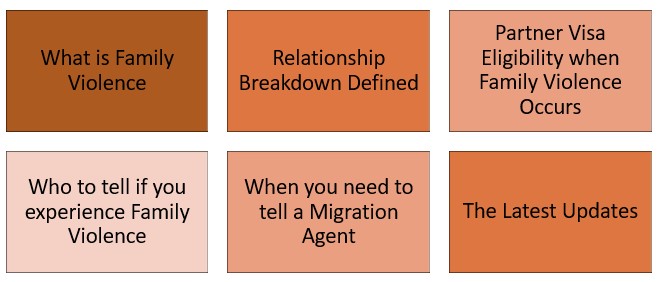
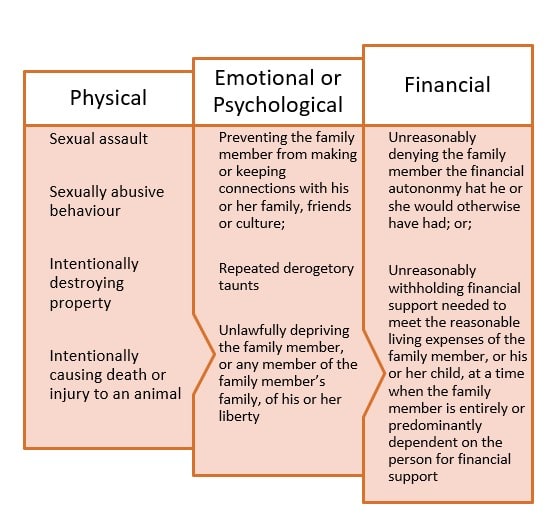
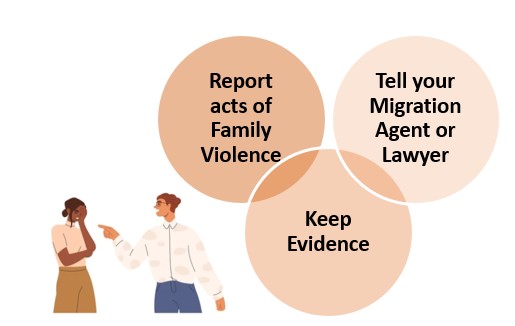

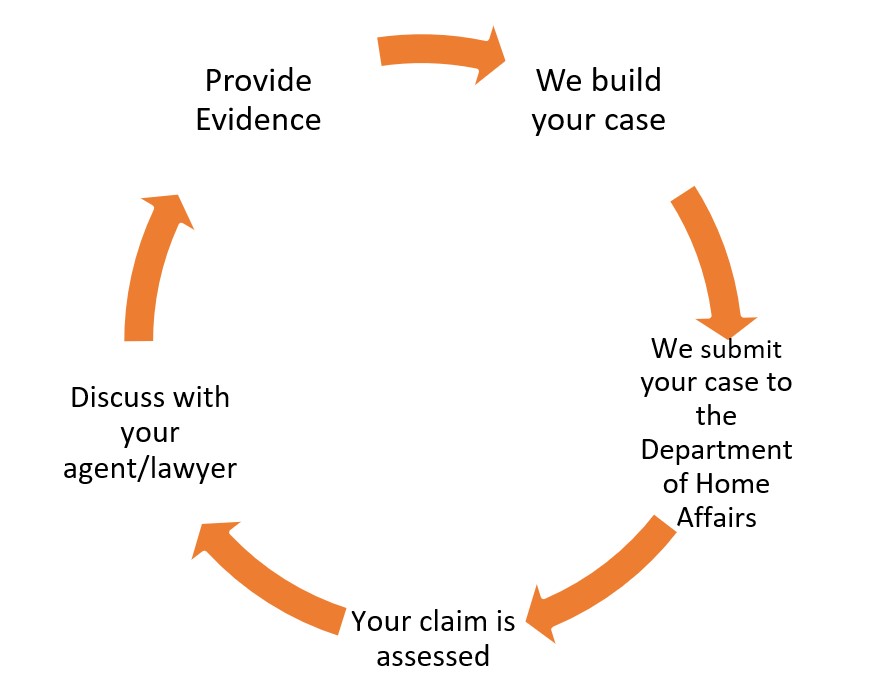
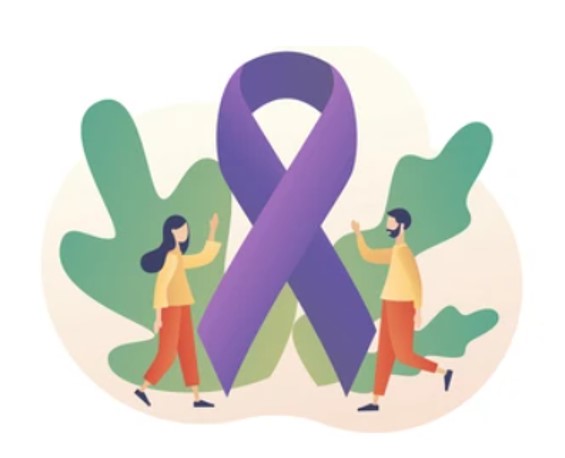




National Innovation Visa – South Australia Criteria
Iran Visa Support – Australia
Immigration updates (Skilled, Employer and family visas) June 2025
National Innovation Visa – NSW Criteria
Registering as a Midwife in New Zealand (Non-AU/NZ Trained Applicants)